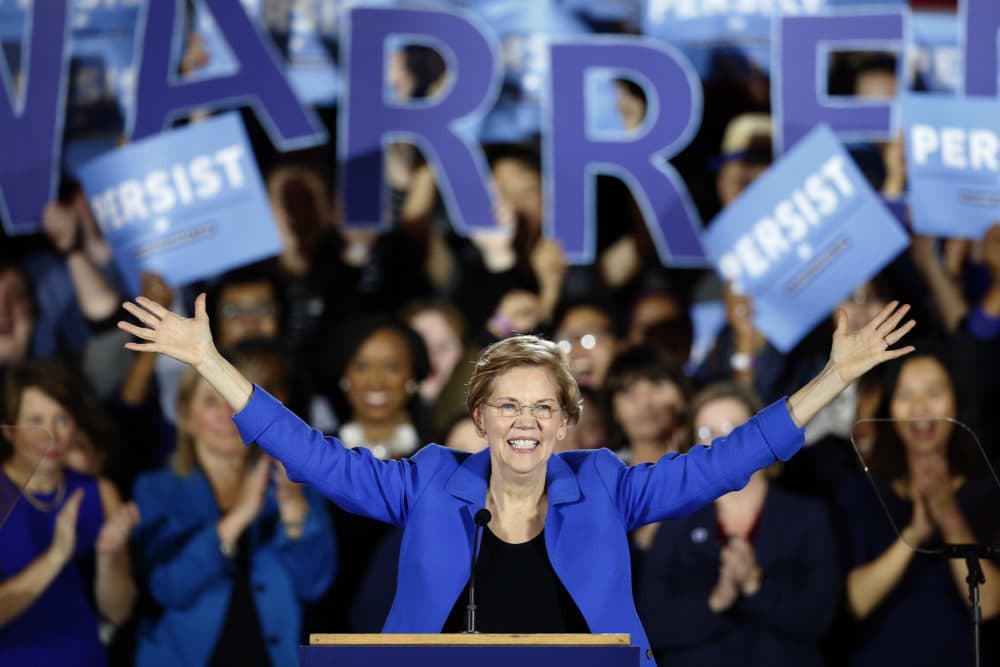Advertisement
Commentary
The Bluest State? More Like The Most Practical

Leave the confines of the Bay State and get ready for the mockery and gibes. We’re Taxachusetts, the hyper-liberal, Kennedy-loving, tax-and-spend home of left-wing crazies. But the results from the 2018 midterm elections paint a far more nuanced picture.
In truth, we’re a pragmatic bunch: fans of personal liberty, suspicious of overreaching economic regulation, averse to extreme partisanship and inclined towards solutions.
Two of the November ballot questions drive home the point. Question 1 asked voters to mandate nurse staffing ratios at hospitals. It was a naked piece of pro-union feather-bedding, interfering not only with health care administrators’ judgments but also elevating nurses at the expense of other health care professionals, such as social workers. It was overwhelmingly defeated — 70 percent to 30 percent — a sign that voters would prefer markets rather than politics dictate how businesses run.
On the other hand, Question 3 had to do with individual rights and specifically with the rights of transgender folks. The “yes” position also passed by strong margins (in this case, “yes” was a vote to uphold a two-year-old state law that protects transgender people in public accommodations).
The message from the two questions seems clear: The electorate is socially liberal but economically more conservative.
And that, of course, is what they got in the governor’s race. Charlie “Don’t call me a Republican” Baker spent his first four years in office making friends with Democrats in the state House and Senate, supporting same-sex marriage and abortion rights, and reveling in opportunities to play Mr. Fix-It so that government would work efficiently and effectively. He easily bested Democratic challenger Jay Gonzalez, whose efforts to paint the race in partisan terms never caught fire.
Meanwhile, the most partisan politician in the commonwealth — Elizabeth Warren — also won re-election, yet her margin was not what it should have been. Running against weak and underfunded Trump-enthusiast Geoff Diehl, she should have won resoundingly, yet only managed a 61 percent — well less than Baker’s own results. I read that as a message from the ballot box. Warren is an anti-Trump lightning rod. But perhaps voters would like to see her start spending a bit more time at home working on issues of concern to Massachusetts.
Advertisement
The socially liberal-economically conservative politics of the midterms is not new. Stereotypes aside, the Bay State has been pragmatic at least since the days of Gov. Bill Weld. And that pragmatism has remained in place for one simple reason: It works.
Just consider the political climate here: No state is more anti-Trump than Massachusetts, but when it comes to local politics, the degree of comity is striking. Politicians collaborate together on common ends. And when they disagree, they don’t demonize and hate on one another. Instead, they just…disagree.
How refreshing.
But there’s more than just being pleasant to one another. By almost any measure of public good, Massachusetts is doing well. It consistently ranks in the top fifth of all states. Our economy is third best in the nation (and tops for “innovation potential” — meaning we’re on the cutting edge), unemployment is low and incomes are high. The state’s educational system is the best in the country and we’re tops in terms of health. Even some of our failures (long commute times, for instance) are a reflection of success (people have jobs). Moreover, the state has managed this without excessive taxation; the “Taxachusetts” moniker notwithstanding, compared to other states our tax burden is about average.
Yep, it’s easy to make fun of Massachusetts. Yet our politics get results. Jokes aside, other states may want to pay heed.
Correction: An earlier version of this commentary misspelled Geoff Diehl's first name. We regret the error.
This article was originally published on November 08, 2018.
